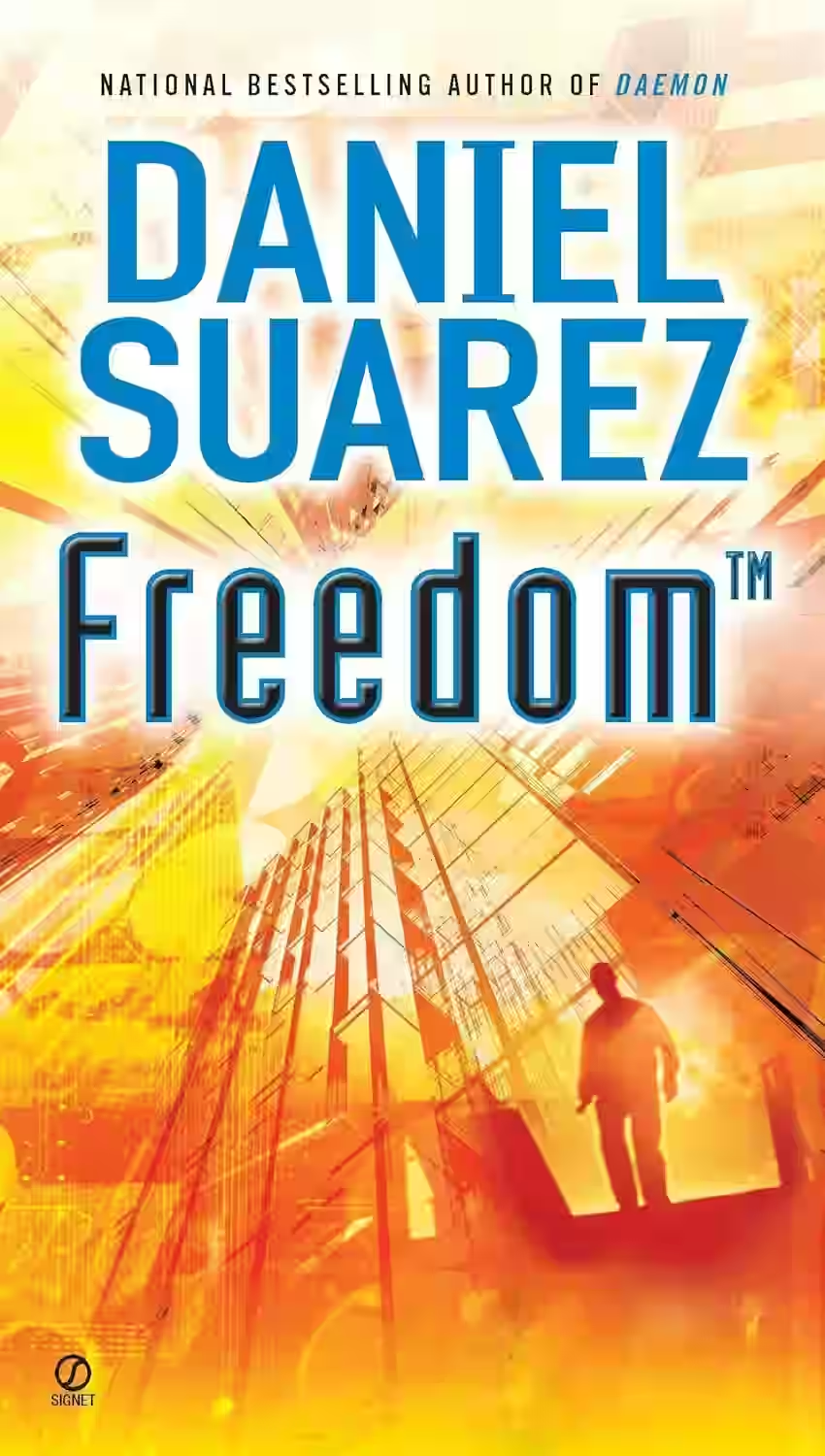
"Freedom (TM)" by Daniel Suarez is a gripping techno-thriller that picks up where its predecessor, "Daemon," left off. The novel delves into themes of control, societal structures, and technological autonomy as it explores the complexities of an advanced AI system known as the Daemon. Laying down a narrative interwoven with cyber warfare, political intrigue, and questions of economic inequality, Suarez crafts a story that is as thought-provoking as it is action-packed. Characters on various sides of the conflict — hackers, corporate moguls, and rebels — navigate a digital future that challenges the nature of freedom and privacy. With its intricate plotting and a keen eye on future technological prospects, "Freedom (TM)" immerses readers in a vivid exploration of humanity's potential path forward.
About Daemon Series
The Daemon duology by Daniel Suarez is a gripping techno-thriller series that delves into the consequences of autonomous technology on society. The first book, Daemon, introduces Matthew Sobol, a legendary game designer who, upon his death, activates a self-replicating computer program known as the Daemon. This program begins to manipulate global systems, recruiting operatives and orchestrating events to destabilize the existing order . The sequel, Freedom™, continues the narrative as the Daemon's influence expands, challenging traditional power structures and proposing a new societal model based on decentralized, sustainable communities. Former detective Pete Sebeck becomes a pivotal figure in navigating this transformed world, balancing the promise of technological utopia against the perils of uncontrolled AI . Together, the series offers a thought-provoking exploration of technology's potential to both liberate and dominate.
About Daniel Suarez
Daniel Suarez is a renowned American author, celebrated for his gripping science fiction and techno-thriller novels. Born in New York City and raised in a family with a deep appreciation for literature and technology, Suarez graduated from the University of Delaware with a degree in English Literature. Before becoming a full-time writer, he worked as a systems consultant, an experience that heavily influences his work. Notably, his debut novel, 'Daemon', published in 2006, quickly captivated readers and critics alike with its vivid portrayal of the intersection between technology and society. Its sequel, 'Freedom™', continued this exploration and solidified Suarez’s reputation as a master storyteller who deftly weaves intricate plots with thought-provoking insights into the digital future. His subsequent works, including 'Kill Decision', 'Influx', and 'Delta-v', further established his impact on the speculative fiction genre, highlighting the ethical dimensions of innovation and artificial intelligence. Suarez’s works resonate widely, not just for their thrilling narratives, but for their prescient warnings and philosophical musings on the trajectory of humanity in an increasingly automated world.
Other Books by Daniel Suarez
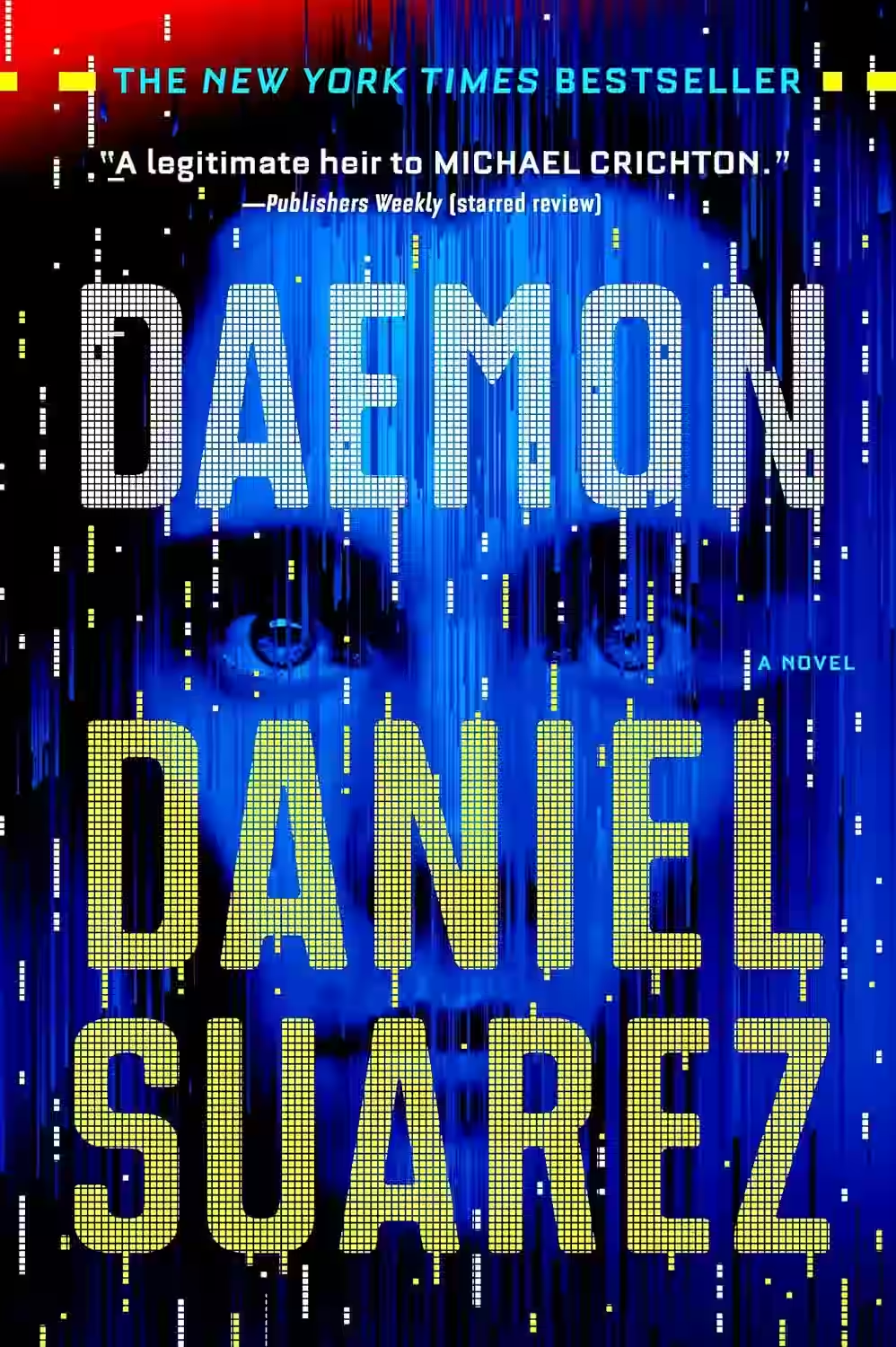
Daemon
Series: Daemon (#1)
In "Daemon," Daniel Suarez crafts a high-octane techno-thriller that delves into the fast-paced world where computer code has lethal consequences. The story begins with the mysterious death of a wealthy and reclusive gaming pioneer, Matthew Sobol, setting off a series of unforeseen and devastating events dictated by a rogue program designed to fulfill its creator's dark legacy. As the Daemon autonomously executes Sobol’s final plans, it weaves a complex web that stretches across global networks, implicating police, hackers, and corporate moguls alike. Suarez skillfully combines elements of cyber espionage, AI, and social engineering to explore themes of power, control, and human dependency on technology. "Daemon" is a gripping narrative that keeps readers on edge while provoking thought about the unchecked growth of digital systems in our lives.
Similar Books
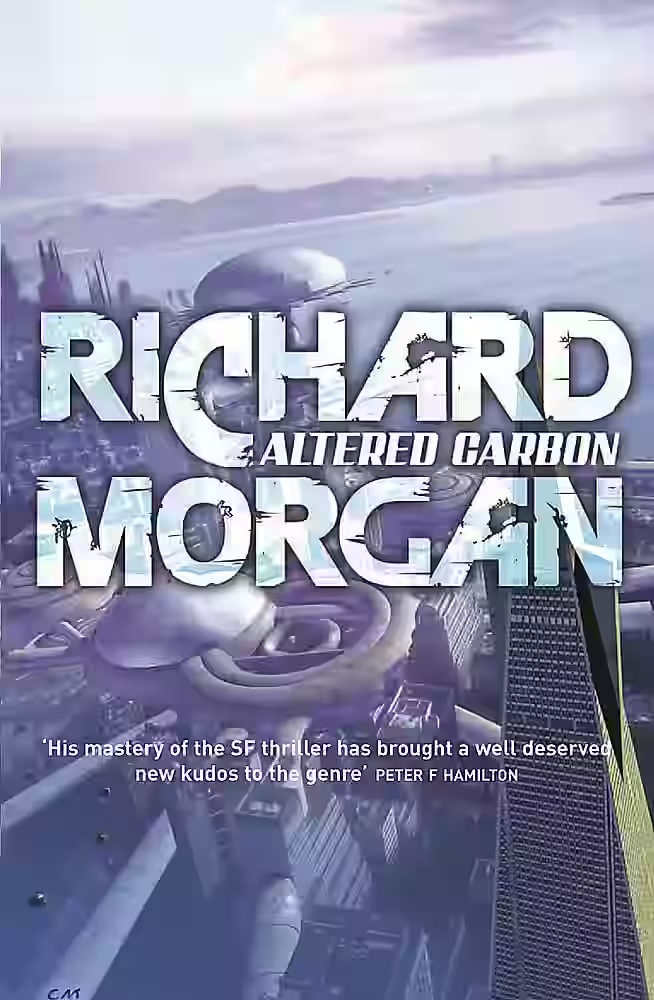
Altered Carbon
Series: Takeshi Kovacs (#1)
In Richard K. Morgan's 'Altered Carbon,' readers are plunged into a futuristic world where consciousness can be transferred to different bodies, or 'sleeves,' challenging notions of identity and mortality. The story follows Takeshi Kovacs, an ex-soldier turned private investigator, as he navigates a gritty, noir-inspired investigation into a wealthy man's murder. As Kovacs delves deeper into the case, he unravels a complex web of corruption, power struggles, and betrayal. The novel seamlessly combines elements of science fiction, cyberpunk, and hardboiled detective fiction, offering a thought-provoking exploration of themes like technology, ethics, and societal inequality.
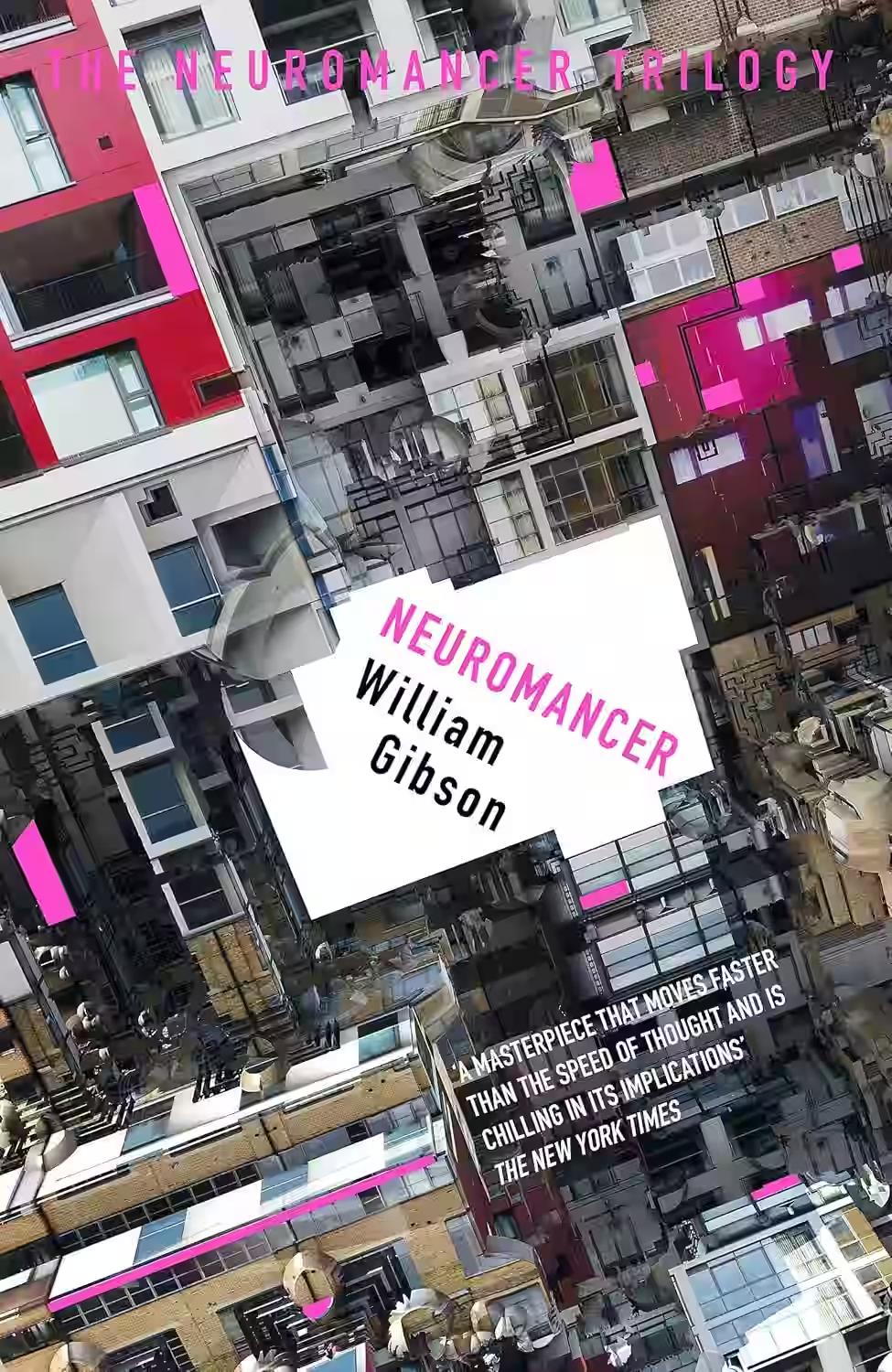
Neuromancer
Series: Sprawl Trilogy (#1)
In William Gibson's 'Neuromancer,' readers are thrust into a dystopian future where cybernetic enhancements and virtual reality reign supreme. The story follows Case, a washed-up computer hacker, who is given a chance at redemption by a mysterious employer. As Case delves deeper into the virtual world, he uncovers a complex web of deceit and power struggles that blur the lines between reality and illusion. Exploring themes of artificial intelligence, corporate greed, and the nature of humanity, 'Neuromancer' is a groundbreaking work of science fiction that set the standard for cyberpunk literature. Gibson's gritty prose and visionary ideas make this a must-read for fans of the genre.

Uglies
Series: Uglies (#1)
In Scott Westerfeld's dystopian novel 'Uglies', readers are transported to a future world where physical beauty is mandated by society. At the age of sixteen, citizens undergo compulsory cosmetic surgery to transform from 'Uglies' to 'Pretties'. The story follows Tally Youngblood, who is on the brink of her transformation, but her world is turned upside down when she meets a rebellious friend, Shay, who questions the societal norms. Themes of identity, conformity, and the nature of beauty are skillfully explored as Tally embarks on a journey that challenges her understanding of reality. Westerfeld's book offers sharp social commentary, action-packed sequences, and believable character development, making it an engaging read that probes thought-provoking issues pertinent to both adolescents and adults. 'Uglies' evokes reflection on the pressure for aesthetic perfection and the loss of individuality, resonating deeply with its readers and sparking conversations about modern beauty standards.
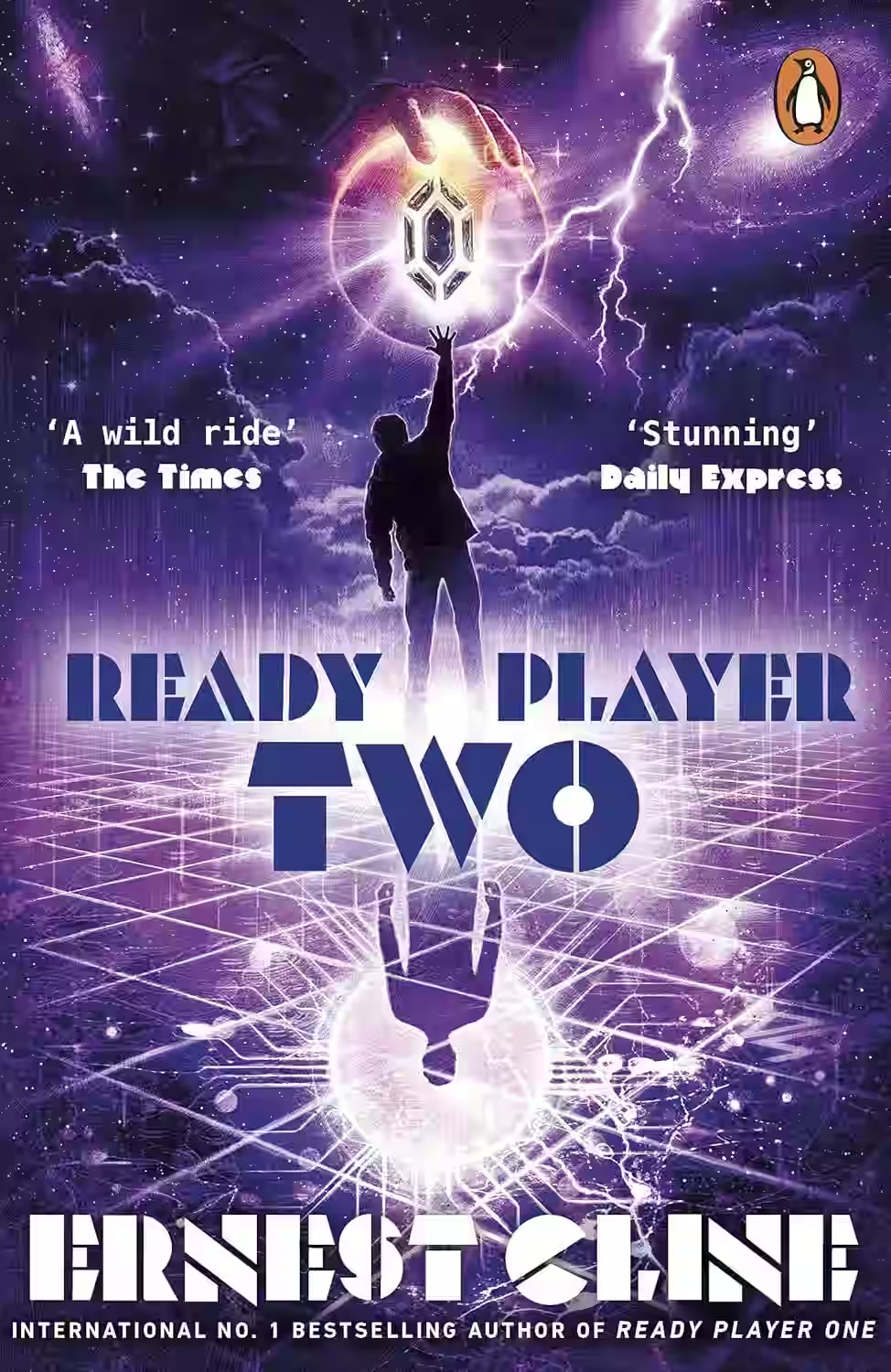
Ready Player Two
by Ernest Cline
Series: Ready Player One (#2)
In 'Ready Player Two', Ernest Cline returns to the vibrant and nostalgia-laden virtual world of the OASIS, launched in his earlier hit 'Ready Player One'. This sequel dives into a new adventure following protagonist Wade Watts as he discovers an enigmatic technology left by the brilliant James Halliday. With potential to revolutionize the digital realm, this new invention also poses unforeseen dangers that could affect the real world. The novel places a strong emphasis on themes of technology and ethics, exploring how they intersect with human experience and identity. While aiming to replicate the magic of its predecessor, 'Ready Player Two' sometimes struggles under the weight of expectations, yet it offers familiar pop culture references and thrilling quest elements that will appeal to fans of the original. The book delivers a mix of adventure, nostalgia, and contemplation of the digital age's impact on society.